Oral History Collections
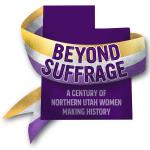
Beyond Suffrage: A Century of Northern Utah Women Making History was initiated to examine the impact women have had on northern Utah. Weber State University explored and documented women past and present who have influenced the history of the community, the development of education, and are bringing the area forward for the next generation. The project looked at how the 19th Amendment gave women a voice and representation, and was the catalyst for the way women became involved in the progress of the local area. The project examines the 50 years (1870-1920) before the amendment, the decades to follow and how women are making history today.
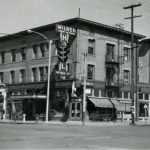
Business at the Crossroads - Ogden City, is a project to collect oral histories related to changes in the Ogden business district since World War II. From the 1870s to World War II, Ogden was a major railroad town and shipping and commerce hub. After World War II, the railroad business declined, but some government agencies and business related to the defense industry continued to gravitate to Ogden.
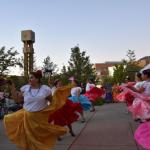
Connecting Weber: History of the Cultural Centers oral history project documents the memories and history of the various cultural centers that were open at Weber State University. These centers included the Multicultural Center (later called the Center for Belonging & Cultural Engagement), Women's Center, Native American Cultural Center, Asian American and Pacific Islander Cultural Center, Pan-Asian Cultural Center, Black Cultural Center, and the LGBTQ Resource Center. The centers were closed in July 2024 due to state legislation.
Did you have the opportunity to visit any of the WSU cultural centers, some of which are the Women’s Center, Multicultural Center, LGBTQ Resource Center, or the Black Cultural Center? As these invaluable spaces closed in July 2024, WSU Special Collections & University Archives are collecting stories to preserve their memories and impact. Your experiences are important—please share them with us. If you are interested, please fill out this form: https://dc.weber.edu/form/share-your-memories.

The Hill Aerospace Heritage Foundation oral history project is a series of oral histories documenting the life stories and experiences of the board members of the Hill Aerospace Heritage Foundation. Board members recall their time in military service, as well as their memories of starting the foundation in 1983 and opening the Hill Aerospace Museum in 1987. Each interview begins with a brief life sketch of the individual board member, then moves onto their memories of the early days of the Hill Aerospace Museum. They discuss ongoing efforts to make the museum the premier location for preserving Utah’s Aviation and Air Force history and name important figures on the Board of Directors, base command, and museum staff who helped to make the museum an important influence in the community.
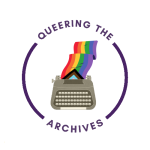
Queering the Archives oral history project is a series of oral histories from the LGBTQ+ communities of Weber, Davis and Morgan Counties of Northern Utah. Each interview is a life interview, documenting the interviewee’s unique experiences growing up queer.
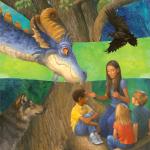
The Weber State University Storytelling Festival was implemented by the Friends of the Stewart Library in 1992. The library sponsored and managed the annual festival until 1998, when the festival was moved to the Department of Teacher Education, with the Library continuing as a sponsor. The three-day festival entails storytellers from all over the nation, including youth storytellers. The events are made up of workshops and presentations, a fund-raising banquet, and a wrap-up of wonderful stories from gifted performers.
This interesting collection includes oral history interviews with visiting storytellers, discussing how they became interested in storytelling and where they receive their inspiration.
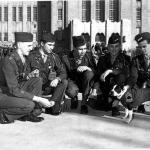
The World War II "All Out for Uncle Sam" oral history project contains interviews from veterans of the war, wives of soldiers, as well as individuals who were present during the war years. The interviews became the compelling background stories for the "All Out for Uncle Sam" exhibit. The project received funding from Utah Division of State History, Utah Humanities Council and Weber County RAMP.
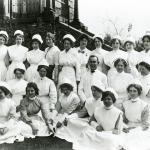
The Dee School of Nursing was founded in 1910 to provide training for nurses who would staff the new Dee Memorial Hospital. The first class of eight nurses graduated from the school in 1913 and the school continued to operate until completed in 1917 and all nursing students were required to live in the home during their training.
This oral history project was created to capture the memories of the school's alumni before their stories disappear in the same way the Dee Hospital has disappeared. The oral interviews focus on how the women became involved with the school, their experiences going through training, and how they used the training.
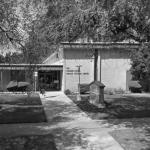
The Golden Hours Senior Center provides services to many patrons in Ogden, Utah. In 2014, the public history class conducted oral histories with several of these community members, covering topics such as World War II, education, segregation, Weber State University, Ogden City, and 25th Street during the 1940s and 1950s. These interviews add to the community history of Weber County.
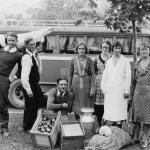
The Great Depression in Weber County, Utah, is an Oral History Project by Mack S. Taft for completion of his Master’s Thesis at Utah State University during the summer of 1969. The forty-five interviews address the Great Depression through the eyes of individuals in several different occupations including: Bankers, Laborers, Railroad Workers, Attorneys, Farmers, Educators, Businessmen, Community and Church Leaders, Housewives, Children and Physicians. All of these individuals lived in Weber County from 1929 to 1941. The interviews were based on what they remembered about the depression, how they felt about those events and how it affected their life then and now.
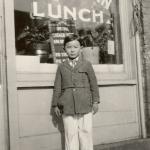
Immigrants at the Crossroads - Ogden City is a project to collect oral histories, photographs and artifacts related to the immigrant populations that helped shape the cultural and economic climate of Ogden. This project will expand the contributions made by Ogden’s immigrant populations: the Dutch, Italian and Greek immigrants who came to work on the railroad and the Japanese who arrived after World War II from the West Coast and from internment camps.
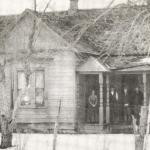
The Marriott-Slaterville City Oral History Collection was created by the residents of the town to document their history. Each participant was provided with a list of questions asking for; stories about their childhood, schools they attended, stories about their parents and grand-parents, activities they enjoyed, fashions they remember, difficulties or traumas they may have dealt with, and memories of community and church leaders. This endeavor has left behind rich histories, stories and important information regarding the history of the Marriott-Slaterville area.
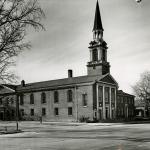
The New Zion Community Advocates worked with community members age 80 years and older to have contributed to the history of Ogden city. The interviews looked at the legacy of the interviewees through armed services, work, social life, church, NAACP and educational systems in an environment where their culture was not predominant. This program has received funding from the Utah Humanities Council and the Utah Division of State history.
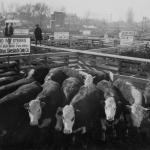
The Ogden Union Stockyard was a key fixture in the largest livestock market west of Denver during its heyday from 1916 to 1971. The activities at the yard brought Ogden national attention as a livestock center; the rise of the livestock shows, auctions, etc. at the site spurred the local and regional livestock industry, physically shaping the development of the agricultural landscape both near and far. This project documents some of the stories of the stockyard workers and visitors.
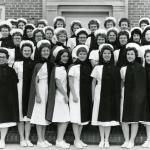
The St. Benedict's School of Nursing was founded in 1947 by the Sisters of Mount Benedict. The school operated from April 1947 to 1968. Over the forty-one year period, the school had 605 students and 357 graduates. In 1966, the program became the basis for Weber State College's Practical Nursing Program. This oral history project was created to capture the memories of the graduates and to add to the history of nursing education in Ogden. The interviews focus on their training, religion, and experiences working with doctors, nurses, nuns, and patients as St. Benedict's Hospital. This project received funding from the Utah Humanities Council and the Utah Division of State History.
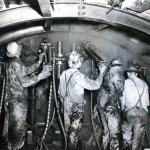
The Utah Construction Company/Utah International Inc. Oral History Project was created to capture the memories of individuals associated with the company. Several of the interviewees are family and relatives, while others are personalities involved with Utah Construction Company/Utah International Inc. and some the company's prominent figures.
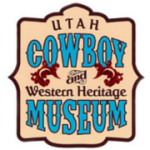
The Utah Cowboy and Western Heritage Museum honors men and women whose lives exemplify the independence and resilience of the people who settled Utah, and includes artists, champions, entertainers, musicians, ranchers, writers, and those persons, past and present, who have promoted the Western way of life. Each year, the inductees are interviewed about their lives and experiences living the Western way of life.
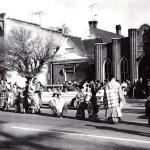
The Weber and Davis County Communities Oral History Project includes interviews conducted by Weber State University faculty, staff, students. The interviews cover various topics including community service, city government, diversity, military service, personal everyday life experiences and other recollections regarding the history of the Weber and Davis County areas.
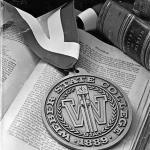
The Weber State College Oral History Program was created in the early 1970s to "record and document, through personal reminiscences, the history, growth and development of Weber State College." Through interviews with administrators, faculty and students, the program's goal was to expand the documentary holdings on Weber State College and its predecessor entities. From 1970 to 1976, the program conducted some fifteen interviews, under the direction of, and generally conducted by Harold C. Bateman, an emeritus professor of history. In 1979, under the direction of archivist John R. Sillito, the program was reestablished and six interviews were conducted between 1979 and 1983. Additional interviews were conducted by members of the Weber State Community.
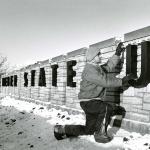
The Weber State University Oral History Program began conducting interviews with key Weber State University faculty, administrators, staff and students, in Fall 2007. The program focuses primarily on obtaining a historical record of the school, along with important developments since the school gained university status in 1991. The interviews explore the process of achieving university status, as well as major issues including accreditation, diversity, faculty governance, changes in leadership, curricular developments, etc.
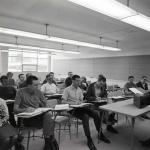
The Weber State College/University Student Projects have been created by students working with several different professors on the Weber State campus. The topics are varied and based on the student's interest or task for a specific assignment. These oral history assignments were created to help Weber State sutdents learn the value and importance of recording public history and to benefit the expansion of the Weber State oral history collections.
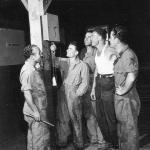
The Prisoners of War at Defense Depot Ogden oral history project is the documentation of the lives of the Italian and German prisoners that were held at DDO during World War II. The Ogden Defense Depot, designated as a POW camp on October 11, 1942, was one of the first ten camps in the country. An estimated 5,000 Italian prisoners and approximately 4,000 German prisoners were sent to the facility. The prisoners worked in local warehouses, farms, and orchard. After Italy surrendered in 1943, Italian Service Units were created which allowed the Italians greater freedom than the Germans, including visits to downtown Ogden. The camp closed during the summer of 1946 after the 10,000 prisoners were shipped home. This project contains interviews from people who had interaction with the Italian and German POWs, including the community of Weber County and POW widows. They discuss they daily lives of the prisoners which includes conditions at the camp, work related issues, and the feelings of the community surrounding the POW camp.

